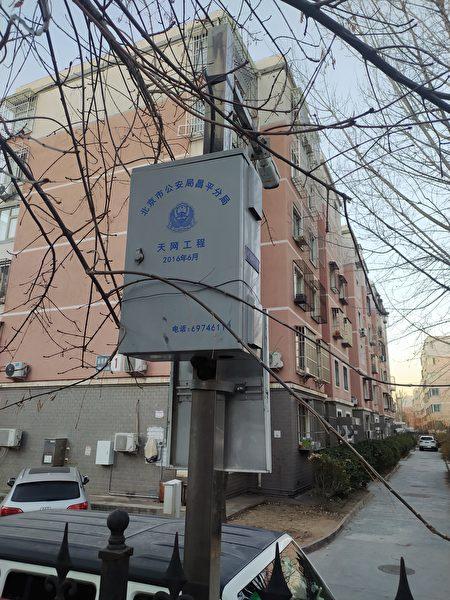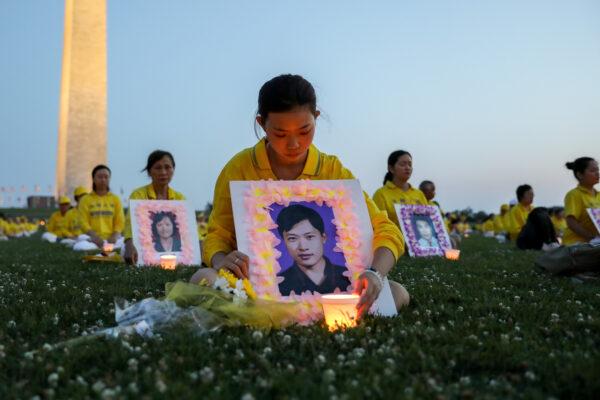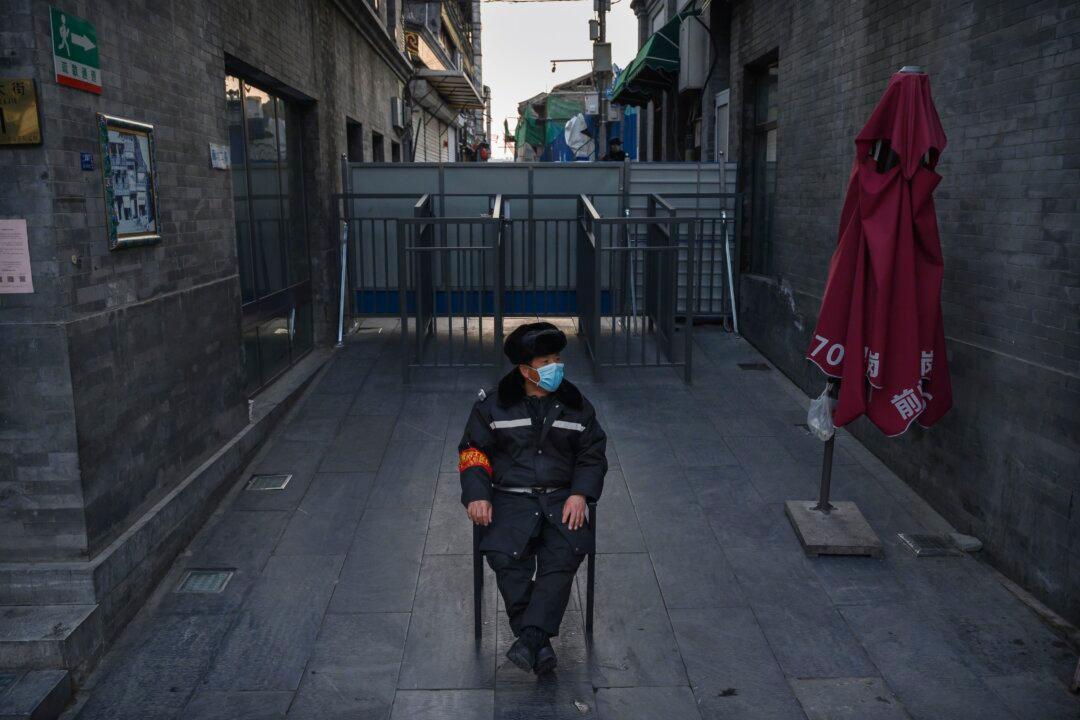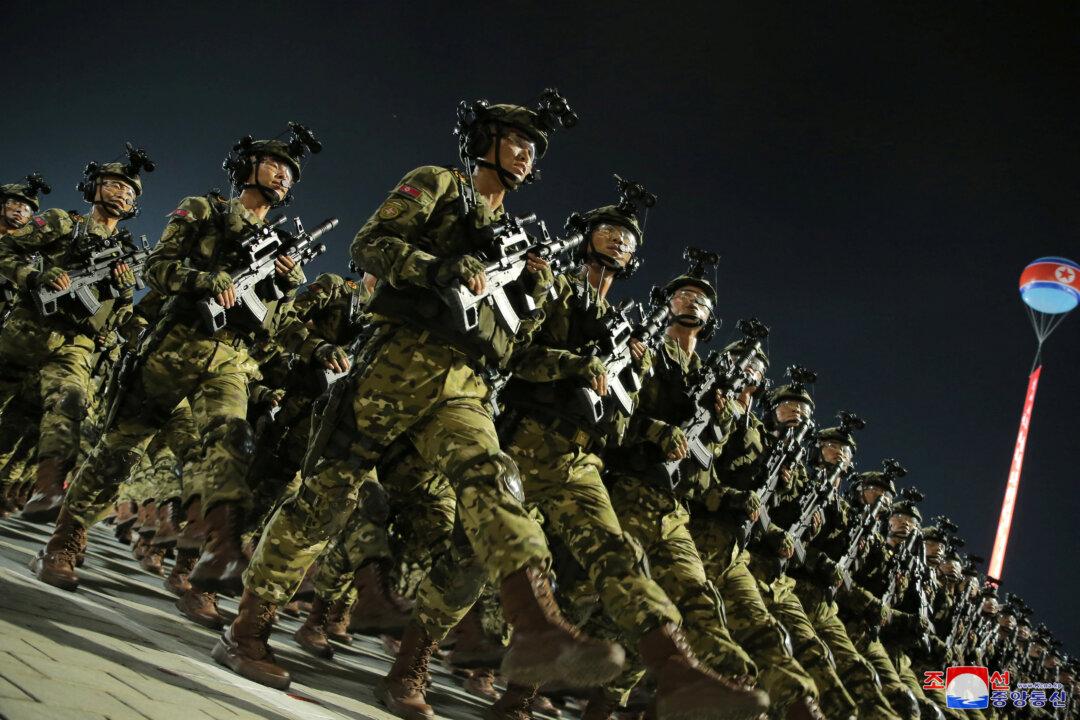The Chinese Communist regime recently publicized its engaging of citizen to carry out stability maintenance during the Winter Olympics.
On Dec. 2, Guo Shengkun, the Secretary of the Political and Legal Affairs Commission, touted the importance of grasping political security through adopting the “Maple Bridge experience,” and deepening “grid management.”
The Maple Bridge experience was a 1960 pilot movement that engaged the people in a regional struggle in Maple Bridge Town, Zhejiang, an eastern, coastal province in China.
Mao Zedong praised the effectiveness of the project and promoted the movement nationwide. This civil struggle model facilitated infiltration of the communist governance at the grassroots.
Budget Increases to Safeguard Winter Olympics
In China’s capital, the popular “Chaoyang masses” and “Xicheng aunts” are public informants and can be seen as the modern Red Guards mobilized in Beijing’s districts of Chaoyang and Xichang by local governments.According to official data from the the government of Zhangjiakou, in one of the three competition zones the public security bureau arranged for a budget of $75.54 million in the 2020 fiscal year, an increase of 5.1 percent over the previous year.
The Zhangjiakou budget form explained the increase was to cover additional expenses required for big data construction, video surveillance installation, and enhancement of policing forces; that is, projects to ensure public security during the 2022 Winter Olympics.
The budget includes $2.87 million for construction of video image information platforms and new surveillance cameras at 3,680 check points; and $2.58 million for the Winter Olympics security big data center.

Special Targets
On Nov. 30, a Chaoyang police officer called a local resident and said, “The Winter Olympics is approaching, do not go out … there have been several arrested elsewhere,” reported Minghui, a U.S.-based website that tracks the persecution of Falun Gong in China.The call was meant to warn Han Fei, a Falun Gong adherent living in Beijing, of the increased surveillance.
She has been subject to the local police routinely monitoring and warning her on so-called sensitive days, as designated by the regime, since Dec. 2019.
In the aforementioned Zhangjiakou public security budget form in 2020, under the category of National Security Special Work, Falun Gong was the first target mentioned.
Since Jiang Zemin, former leader of the regime, ordered the persecution of Falun Gong in 1999, the adherents have been subject to severe monitoring, harassment, surveillance, stalking, detention, imprisonment, and even torturing to death on sensitive days.
Since 2020, the arrests of Falun Gong adherents have increased, court trials expedited, and the persecution of the elderly heightened.
According to Minghui’s report for 2020, at least 15,235 adherents were detained and harassed, 615 imprisoned, 88 killed during detention, and 1,188 elderly (65 and above), among them were 17 people in their 90s, are included in the statistics.
Communism Fears the Power of Peace
Wu Zuolai, a survivor of the 1989 Tiananmen Massacre, told The Epoch Times that the suppression of Falun Gong during the 2008 Beijing Olympics was very severe. He was in Beijing in 2008, and a director of an academic journal owned by the Chinese National Academy of Arts.At least 100 Falun Gong adherents were arrested between Dec. 2007 and Feb. 2008, according to Minghui.
In 2008, he was abducted by the police on his way home after giving a concert on Jan. 26. Yu died while in detention on Feb. 6. He was 42.
Wu Zuolai believes that the persecution of the peaceful Falun Gong adherents continues to this day because the CCP fears the power of peace.
He said, “It doesn’t care about radical force, which can be killed with a gun,” but the peaceful power, such as what Falun Gong has, rights defending lawyers, democratic activists could directly expose its persecution and cruelty to the international community, “which would negatively impact the CCP.”

Stain on the Olympic Spirit
On Dec. 3, Congressional-Executive Commission on China (CECC) Co-Chairs Jim McGovern and Jeff Merkley released a video announcing the Olympic Prisoner Project that will highlight a political prisoner a day for 60 days before the Beijing Olympics, “the stain the regime put on the Olympic spirit.” (Video of their announcement)The joint letter reminded Bach that the prestige of hosting the Olympic Games “merely emboldened the Chinese government’s actions” and led to “a gross increase on the assault on communities living under its rule.”
Despite countries such as the United States, Australia, Canada, Lithuania, the United Kingdom, and Japan, responding to the human rights issue in China with diplomatic boycotting of the 2022 Winter Olympics, analyst Li Xi (pseudonym) believes that the regime will only become more blatant in its atrocities if the majority of the world’s countries choose to keep silent.
Wu Zuolai also commented on the fact that if international pressure was based on the number of rights abuses exposed, it would only force the regime to become more cunning.
“It blocks information, and kills the defending of rights at the budding,” he said, the regime is taking the approach of “information crimes.” It imposes horror on those who seek the truth through the internet.
He said, by hosting international events such as the Olympics, the Chinese Communist Party (CCP) extends its campaign of suppression, and deceives people into believing that it’s doing so in the name of stability maintenance.
Huang Xiaomin, former Chinese Olympian said, “There’s no other country holding an Olympics by means of stability maintenance.”
A Beijing resident, asking to remain anonymous, told the Chinese edition of The Epoch Times, that “International events are important political tasks to the CCP. It is a show at all costs, because it creates a so-called prosperous age under the CCP rule.”
He said, “This is the inferior nature of all communist regimes since the Soviet Union.”





